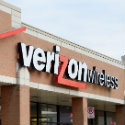
Verizon today provided two important details to its 2019 corporate strategy: The company plans to launch mobile 5G services in at least 30 markets in the first half of this year. And the company said it will launch a Multi-Access Edge Compute (MEC) platform by the end of 2019.
Further, Verizon's CFO at the company's investor event today said that Verizon expects revenues from mobile 5G to "begin to scale" in 2020 and then begin to contribute significantly to the company's bottom line by 2021. And as for MEC, Verizon's CFO said the company expects to start earning B2B revenues from the platform by 2021 and then see them build in 2022.
Verizon has previously promised to launch mobile 5G services by the first half of this year, but the company today confirmed the number of markets in which it would launch the services: 30. However, Verizon did not name any of the markets where it would launch mobile 5G.
Verizon's Ronan Dunne, head of the company's consumer business, confirmed that Verizon would launch its mobile 5G services using its millimeter-wave spectrum. He also said that Verizon's market launches wouldn't just use one or two cell sites, but would be full market launches where all customers would be able to purchase services (AT&T's current mobile 5G launch is only available to "select" customers and details of the offering remain vague).
Dunne declined to talk about the pricing for the service. He said that Verizon would launch the service in "more than" 30 markets but didn't provide details. Verizon customers will be able to access the company's mobile 5G service using Samsung's newly introduced Galaxy S10 5G smartphone, which supports Verizon's millimeter-wave spectrum.
You're invited to attend Light Reading’s Big 5G Event! Formerly the Big Communications Event and 5G North America, Big 5G is where telecom's brightest minds deliver the critical insight needed to piece together the 5G puzzle. We'll see you May 6-8 in Denver -- communications service providers get in free!
Further, Dunne offered a few insights into Verizon's fixed wireless access (FWA) service, which the operator launched late last year in four markets. He hinted that Verizon could offer a "5G Office" service alongside the operator's existing "5G Home" service, indicating Verizon may offer fixed wireless Internet services to both residential locations and business locations.
Verizon executives also hinted that the operator could tweak the contours of its 5G Home service when it expands the service into additional markets in the second half of this year. For example, company executives said that 5G Home might offer 100Mbit/s services in some markets where those speeds would be suitable, whereas it might enter other markets with services at 700 Mbit/s where competition from wired Internet services providers is tighter. Verizon executives also said that the company continues to expect to expand its fixed wireless access services to a total of 30 million households at some unspecified point in the future, but could move past that number depending on the opportunity.
As for Verizon's MEC plans, the operator promised to launch its MEC platform by the end of this year. Verizon executives explained that Verizon's MEC platform would essentially bring computing services closer to end users, thus reducing latency, but installing edge computing functions in Verizon's C-RAN hubs around the country.
Verizon executives didn't provide much specificity about the operator's MEC plans, but said that it would likely be a service targeted at enterprise users looking for local computing services and low latency speeds. Verizon's Hans Vestberg hinted that MEC would be suitable for private enterprise wireless networks. Verizon's Tami Erwin described the operator's opportunity to offer "real time enterprise" services.
Interestingly, Verizon's Dunne specifically mentioned cloud gaming as a possible 5G service from Verizon. The Verge reported earlier this year that Verizon is testing a streaming cloud gaming service called Verizon Gaming.
— Mike Dano, Editorial Director, 5G & Mobile Strategies, Light Reading | @mikeddano
About the Author(s)
You May Also Like










